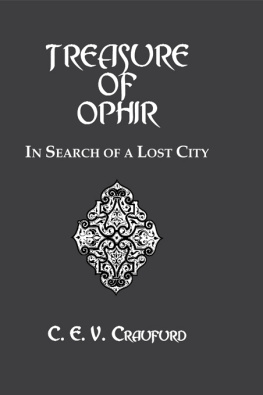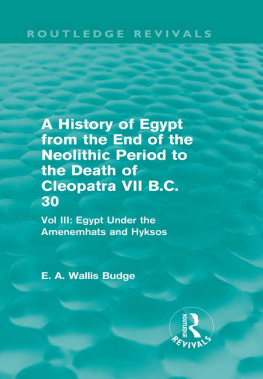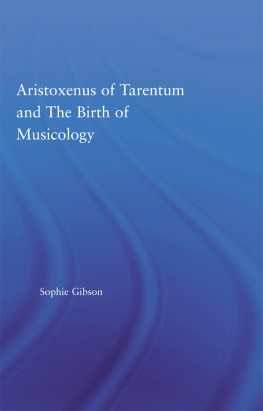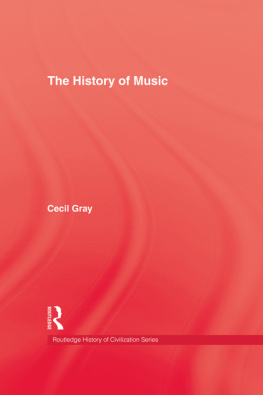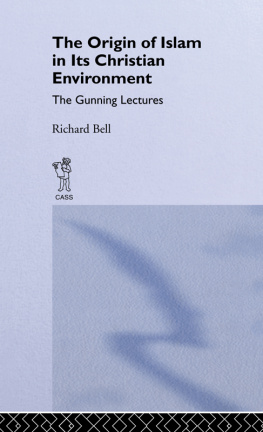DIVINE ORIGIN OF THE CRAFT OF THE HEBALIST
Natural medicine has never been more popular, nor has the timeless craft of herbalism. This remarkable book traces the history of herbs far back into antiquity, and shows that the gods themselves were believed to be the original healers, not only by revealing the knowledge of their healing properties of mankind but by creating the sustaining herbs out of their own bodies. Written by the doyen of orientalists with an unrivalled knowledge of Sumerian, Babylonian, Assyrian and Egyptian herbal literature and traditions, this key volume deals with the old gods as herbalists and their divine medicine: water as a divine element; ancient Egyptian, Sumerian and Assyrian herbals; divine plants; the Greek and Latin herbals, herbals in Syrian and Arabic; Coptic lists of plants and the Ethiopian or Abyssinian herbal, illustrated with examples of the original text. Proving conclusively both the antiquity and worth of herbal medicine, this work is indispensable for modern practitioners who want to know about of the true roots of their work, as well as for all those interested in the history of medicine.
E.A. WALLIS BUDGE was once Keeper of Egyptian and Assyrian Antiques in the British Museum, and author of numerous works.
First published in 2002 by
Kegan Paul International
This edition first published in 2011 by
Routledge
2 Park Square, Milton Park, Abingdon, Oxon, OX14 4RN
Simultaneously published in the USA and Canada
by Routledge
711 Third Avenue, New York, NY 10017
Routledge is an imprint of the Taylor & Francis Group, an informa business
Kegan Paul, 2002
All rights reserved. No part of this book may be reprinted or reproduced or utilised in any form or by any electronic, mechanical, or other means, now known or hereafter invented, including photocopying and recording, or in any information storage or retrieval system, without permission in writing from the publishers.
British Library Cataloguing in Publication Data A catalogue record for this book is available from the British Library
ISBN 10: 0-7103-0730-6 (hbk)
ISBN 13: 978-0-7103-0730-9 (hbk)
Publishers Note
The publisher has gone to great lengths to ensure the quality of this reprint but points out that some imperfections in the original copies may be apparent. The publisher has made every effort to contact original copyright holders and would welcome correspondence from those they have been unable to trace.
PREFATORY NOTE
THE herb-doctors and physicians of Sumer, Babylon, Assyria and Egypt have proclaimed with no uncertain voice that their craft was founded by the gods, who taught men the curative properties of water, herbs and plants and oils, and who were themselves the first practitioners. And for the last 5000 years men in every civilized country have regarded the divine art of healing as the greatest of the gods gifts to men. The divine art was carefully and jealously guarded by its recipients, and for many generations was preserved by means of oral tradition. As soon as men learned to write they committed the teaching to the clay tablet and the roll of papyrus, and drew up lists of medicinal herbs, and these documents constituted the first Herbals. The British Pharmacopoeia of the present day contains much that is derived from the early Oriental Herbals.
It would be foolish to blink the fact that in ancient Herbals medicine and magic are almost inextricably mixed together; but the broad fact remains, and it is admitted by all competent authorities, that the compilers of the oldest Oriental Lists of Plants and Herbals had a very real knowledge of primitive medicine. But for the ingrained and invincible love of magic in their patients that knowledge would have been greater. From this real knowledge the modern science of herbalism has been developed, just as astronomy owes its origin to Sumerian and Babylonian astrology, and chemistry to alchemy, i.e. the art of Egypt (Al, the Arabic article, X) or the art of the land of black earth (X).
The Edwin Smith Papyrus affords evidence that in Egypt at least there were as early as B.C. 2000 herb-doctors and physicians who discarded magic from their treatment of patients, and who understood that sicknesses and diseases were the effects, not of the operations of devils, but of purely natural causes. They practised dissection, and tried to find what these causes were, and the passages of the papyrus already published certainly suggest that such men were genuine seekers after truth, who were as much interested in informing themselves as in helping their patients.
The ASU, or Oriental prototype of the physician, whether Babylonian or Egyptian, of to-day wore a long woollen cloak, and a head cloth in folds, and sandals; when he set out on his rounds he probably rode a donkey. As a herbalist he took with him his box of medicines, and as a magician his wonderworking rod, which was the symbol of his profession. This last was a very important object, and its use among magicians was general. With the rod which was endowed with the power of turning into a serpent, and which God had given to him (Exod. iv. 17), Moses divided the waters of the Sea of Reeds (Exod. iv. 21), and defeated Amalek (Exod. xvii. 11), and brought water out of the rock. And Aaron with his rod turned the waters of the Nile into blood, and produced the plague of frogs (Exod. vii. 19; viii. 6). The Sumerian herbalist was accompanied by two men, one to recite incantations over the patient (the exorcist), and the other to interpret the omens derived from his condition. The herbalist was the least important of the three, for the divine art of the herb-doctor, strange though it seems, was at that time in thrall to magic, and the herb-doctor himself was subordinate to the exorcist and the interpreter of omens. To-day the physician visits his patients by motor-car, without enchanter and without a reader of omens, for he and his craft are now freed from the bonds of magic. Armed with the true science of medicine, he takes no wonder-working rod with him. But he and his colleagues, like their great predecessor sculapius, preserve the memory of and pay honour to the serpent-encircled rod of the Sumerian god Ningishzida, the son of Ninazu, the Master-physician, by making it the symbol of their great profession.
During the past forty years a great deal has been discovered about the forms and contents of Oriental Herbals, but the information given about them in the ordinary text-books is meagre and incomplete. And during the long period when I was Keeper of Egyptian and Assyrian Antiquities in the British Museum I was often called upon to supplement it. I have, therefore, at the request of my friends in the Society of Herbalists, written the following pages on the earliest Oriental Herbals strictly, of course, from the point of view of the archologist, and described briefly the attributes and works of the earliest gods of medicine in Mesopotamia and Egypt. I have tried to show how the Sumerian, Egyptian, Babylonian and Assyrian Herbals formed the foundation of the Greek Herbals, and how these in turn were translated into Syriac and Arabic and so became known throughout Western Asia, and, thanks to the Nestorian missionary doctors, in Turkestan and China also. For information about the transmission of the Herbals of Dioscorides and Galen into Europe by means of translations into Latin, Italian, German, French, Spanish, Anglo-Saxon, etc., the reader must consult the usual medical Bibliographies. The literary history of the English Herbal has been treated in a competent manner by Miss Eleanour Sinclair Rohde in her




